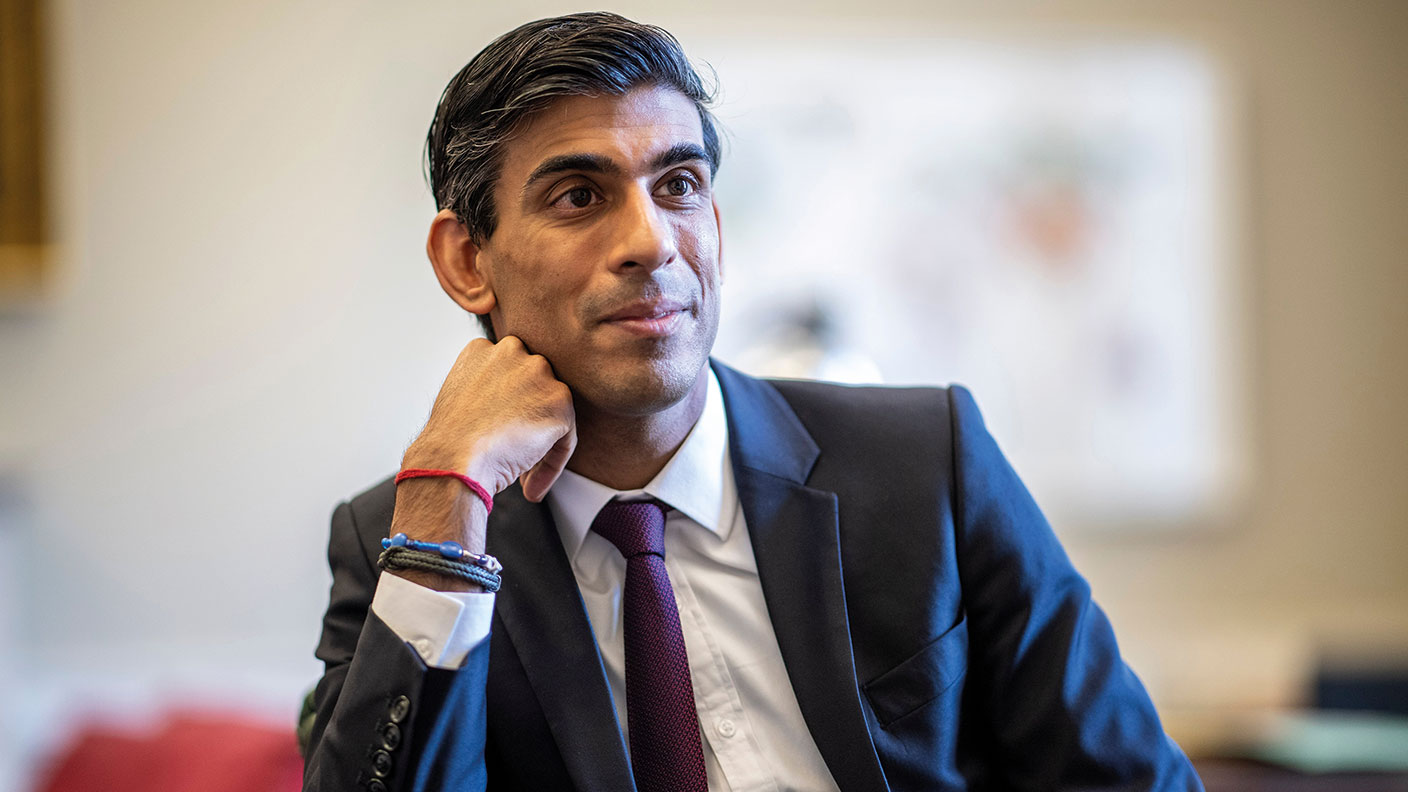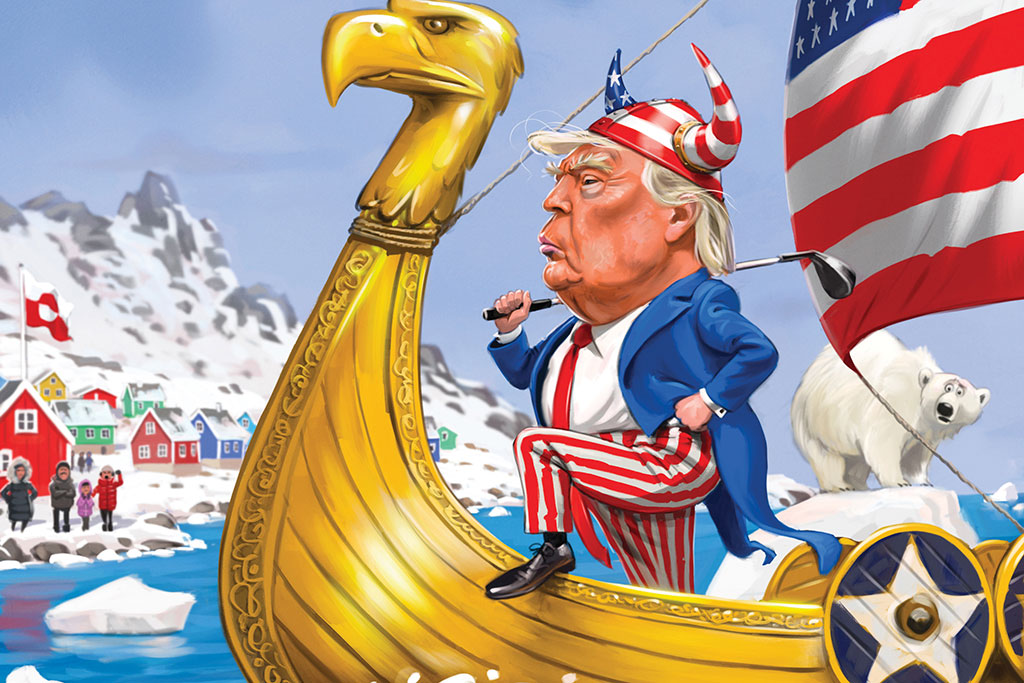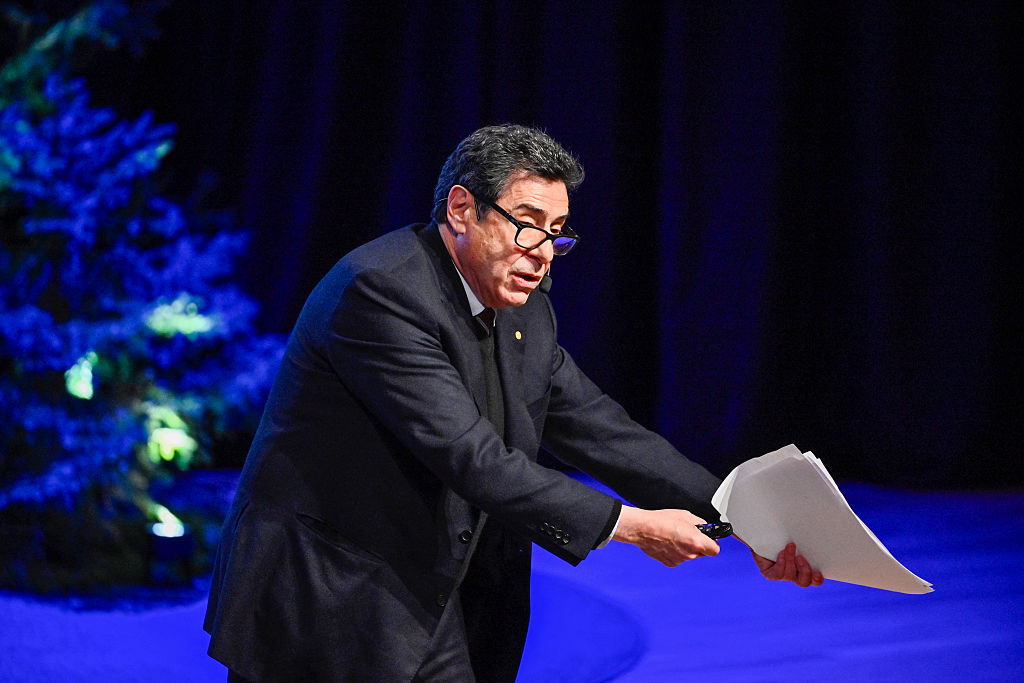Rishi Sunak: buy a house, do it up and then go for a meal
The chancellor has been on a spending spree. Will it help?


Get the latest financial news, insights and expert analysis from our award-winning MoneyWeek team, to help you understand what really matters when it comes to your finances.
You are now subscribed
Your newsletter sign-up was successful
Want to add more newsletters?

Twice daily
MoneyWeek
Get the latest financial news, insights and expert analysis from our award-winning MoneyWeek team, to help you understand what really matters when it comes to your finances.

Four times a week
Look After My Bills
Sign up to our free money-saving newsletter, filled with the latest news and expert advice to help you find the best tips and deals for managing your bills. Start saving today!
This week, chancellor Rishi Sunak unleashed yet more spending (another £30bn-odd) to help the UK get over the worst effects of the coronavirus lockdown. We look at the list in more detail in this week's magazine, but in short, Sunak wants us all to move house (he cut stamp duty up until 31 March), do those houses up (£2bn in energy efficiency grants are being dished out), and then go and eat out more (you’ll get a tenner off your dinner on Mondays to Wednesdays in August at participating restaurants). Meanwhile, the leisure industry is benefiting from a cut in VAT to 5% (a big saving that may or may not be passed on to customers – I’m betting mostly not), while all employers will be encouraged to keep staff on with a £1,000 bonus for any furloughed staff who return to work until at least the end of January.
It doesn’t matter who gets the money
So will any of this help? Paul Johnson, director of the Institute for Fiscal Studies (a think tank that everyone pays attention to), noted on Twitter that this return-to-work bonus is payable even for furloughed employees who have already returned to work. In other words, some bonus money will go to employers who would have brought those workers back anyway.
Others made similar points about the “Eat Out to Help Out” stimulus. Maybe lots of us will rush out to take advantage, but it’s fair to argue that it’ll mostly benefit people who would have been inclined to eat out on a Monday to Wednesday anyway. The consumers might not even benefit directly. It might just subsidise existing meal deals, with the restaurant pocketing the difference. The same can be said about the cut to stamp duty. Is the buyer really going to save thousands of pounds in stamp duty, or will the seller benefit, by pushing up the price?
MoneyWeek
Subscribe to MoneyWeek today and get your first six magazine issues absolutely FREE

Sign up to Money Morning
Don't miss the latest investment and personal finances news, market analysis, plus money-saving tips with our free twice-daily newsletter
Don't miss the latest investment and personal finances news, market analysis, plus money-saving tips with our free twice-daily newsletter
But the key issue is that none of this matters. Right now, it doesn’t matter exactly who benefits from the extra money (at least, not to the government). All that matters right now is that the money enters the economy and gets moving around it. You could even argue that it’s all a form of helicopter money – paying people (or restaurants) to eat out, paying buyers (or sellers) to trade houses, paying home owners (or tradespeople) to insulate their homes – as long as they do it within a certain period of time.
What’s also worth noting is what wasn’t addressed – the scale of government borrowing required to fund all this. Britain is set to spend the equivalent of about 7.4% of GDP on coronavirus recovery packages – a vast amount. Yet Sunak’s predecessor Sajid Javid was politely given short shrift when he asked the chancellor about the implications for the deficit (this, of course, is the reason that Sunak, not Javid, is chancellor).
The main reason the UK doesn’t yet have to worry about spending so much is because everyone else is doing it too. And with central banks all standing behind their respective government bond markets, there are no obvious signs of “bond vigilant-ism” in markets yet. But if all this spending does what it’s supposed to, then inflation will be the result. All I can say is hang on to your gold. The yellow metal hit an eight-year high against the US dollar this week. I suspect we’ll see a new record long before this year is out.
Get the latest financial news, insights and expert analysis from our award-winning MoneyWeek team, to help you understand what really matters when it comes to your finances.

-
 ISA fund and trust picks for every type of investor – which could work for you?
ISA fund and trust picks for every type of investor – which could work for you?Whether you’re an ISA investor seeking reliable returns, looking to add a bit more risk to your portfolio or are new to investing, MoneyWeek asked the experts for funds and investment trusts you could consider in 2026
-
 The most popular fund sectors of 2025 as investor outflows continue
The most popular fund sectors of 2025 as investor outflows continueIt was another difficult year for fund inflows but there are signs that investors are returning to the financial markets
-
 Rachel Reeves is rediscovering the Laffer curve
Rachel Reeves is rediscovering the Laffer curveOpinion If you keep raising taxes, at some point, you start to bring in less revenue. Rachel Reeves has shown the way, says Matthew Lynn
-
 The enshittification of the internet and what it means for us
The enshittification of the internet and what it means for usWhy do transformative digital technologies start out as useful tools but then gradually get worse and worse? There is a reason for it – but is there a way out?
-
 What turns a stock market crash into a financial crisis?
What turns a stock market crash into a financial crisis?Opinion Professor Linda Yueh's popular book on major stock market crashes misses key lessons, says Max King
-
 ISA reforms will destroy the last relic of the Thatcher era
ISA reforms will destroy the last relic of the Thatcher eraOpinion With the ISA under attack, the Labour government has now started to destroy the last relic of the Thatcher era, returning the economy to the dysfunctional 1970s
-
 Why does Trump want Greenland?
Why does Trump want Greenland?The US wants to annex Greenland as it increasingly sees the world in terms of 19th-century Great Power politics and wants to secure crucial national interests
-
 Nobel laureate Philippe Aghion reveals the key to GDP growth
Nobel laureate Philippe Aghion reveals the key to GDP growthInterview According to Nobel laureate Philippe Aghion, competition is the key to innovation, productivity and growth – here's what this implies for Europe and Britain
-
 'Investors should brace for Trump’s great inflation'
'Investors should brace for Trump’s great inflation'Opinion Donald Trump's actions against Federal Reserve chair Jerome Powell will likely stoke rising prices. Investors should prepare for the worst, says Matthew Lynn
-
 The state of Iran’s collapsing economy – and why people are protesting
The state of Iran’s collapsing economy – and why people are protestingIran has long been mired in an economic crisis that is part of a wider systemic failure. Do the protests show a way out?